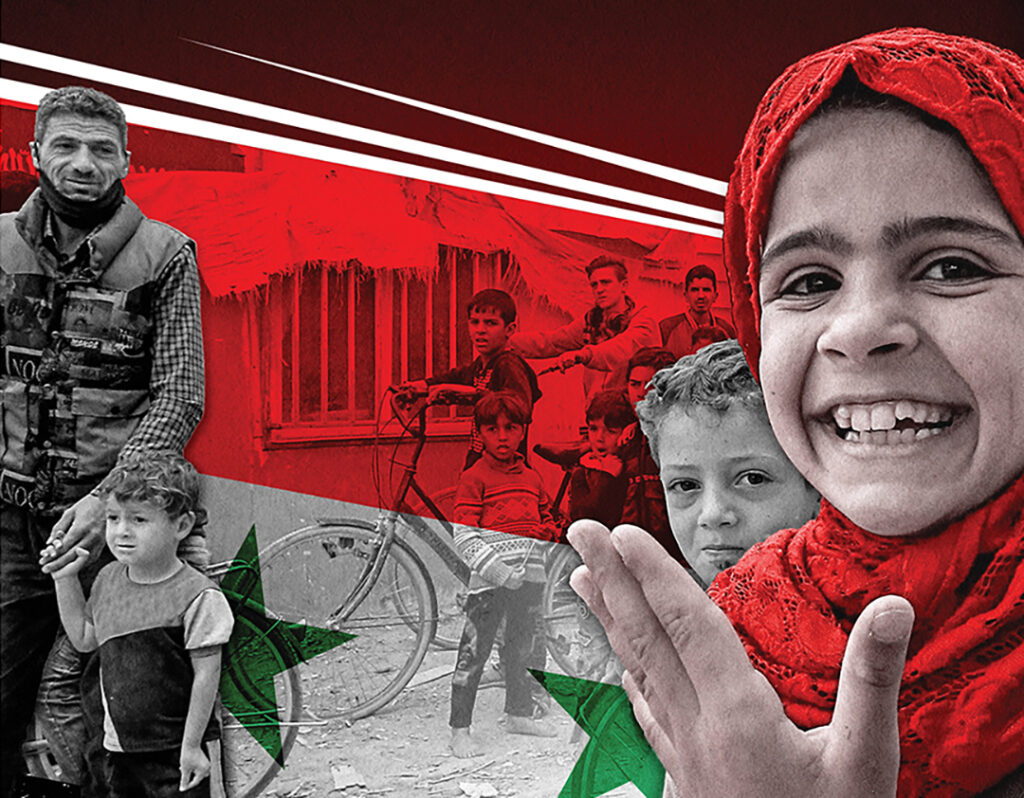JORDANIAN PUBLIC SECURITY DIRECTORATE
Daesh’s invasion caused a significant displacement of civilians who fled from conflict areas in search of a safe haven. The Hashemite Kingdom of Jordan enjoys security and stability under the leadership of His Majesty King Abdullah II ibn Al Hussein, leading the nation to become the preferred destination of a huge influx of refugees from neighboring countries. This has occurred under difficult humanitarian conditions. It brings with it the possibility of people arriving who have different ways of thinking and cultures that may have been infused with terrorist ideology.
Jordan has played a vital role in international partnerships to counter extremism and terrorism. Domestically, Jordan has deterred the infiltration of terrorist ideology and restricted its sources emanating from neighboring countries, where local conflicts have contributed to a rise in terrorist activity.
Refugee camps in neighboring countries have experienced a lot of terrorist activity. Violent extremists have focused on recruiting women and children, while planning terrorist attacks inside and outside the camps. Terrorists have exploited administrative corruption and the limited religious culture among camp administrators to mislead and recruit. Sometimes bribery is used to bring weapons and contraband into the camps; other times, fabricated interpretations of religious texts are used to deceive young people and some security personnel at the camps.
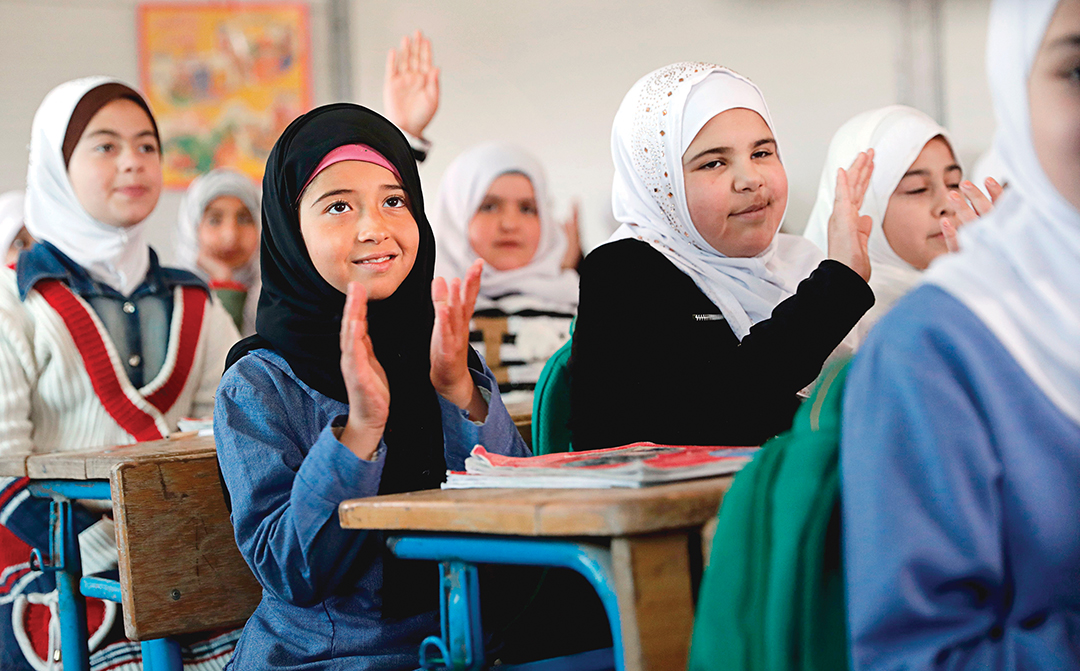
Therefore, Jordan has introduced security measures to verify refugee identity, monitor suspicious activity within the camps, and safeguard all government personnel working within them. In cooperation with all international partner institutions and organizations, Jordan has also sought to create a safe ideological environment in the humanitarian refugee camps on its territory. This is based on the camps becoming part of local communities and continuing the Jordanian role in combating the evils of terrorism, wherever they may be.
One of the most important steps was to hand over responsibility for securing refugee camps to the Public Security Directorate, one of the most important Jordanian institutions. In combating extremist groups, Jordan has mourned its martyrs and made sacrifices over the years. The Public Security Directorate is a well-established Jordanian institution active internationally. Its participation in peacekeeping forces has expanded over nearly 30 years, as one of the security agencies contributing most to international peacekeeping security forces.
The directorate’s experiences have endowed it with the necessary capabilities to manage refugee camps through the Refugee Affairs Directorate of the Ministry of Interior. Its personnel are Public Security Directorate officers and staff, and their mission is to provide a safe environment, organize daily life, intensify cooperation with international organizations to care for refugees, and provide a stable and dignified life in camps spread across north and east Jordan. As of 2021, more than 128,000 refugees resided in Jordan and have been there for many years.
The Public Security Directorate has an ideological security plan to combat extremist thought. It has adopted prevention and intellectual safeguarding for its personnel and for the refugees in these camps through specialized units and support for the Refugee Affairs Directorate, including the Iftaa and Religious Guidance Department and the Community Peace Center.
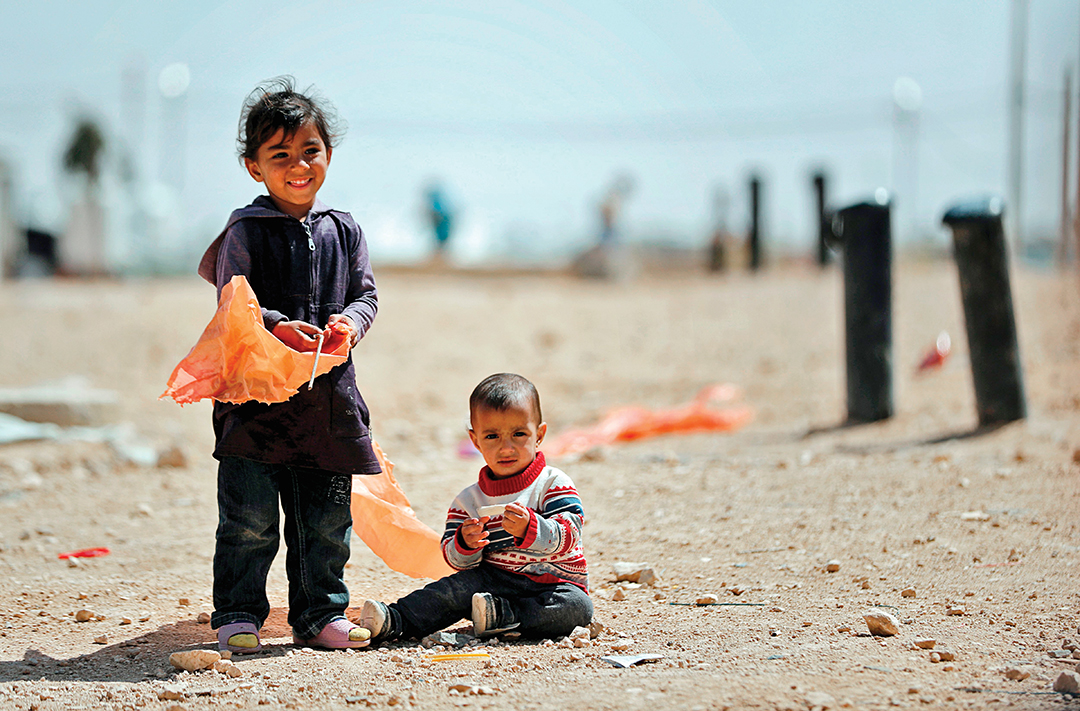
Col. Samer al-Hawamala, director of the Iftaa and Religious Guidance Department in the Public Security Directorate, has said that his department has supported public security in the refugee camps in a functional role. The department uses a practical approach based on the true image of Islam from the Amman Message launched by His Majesty King Abdullah II ibn Al Hussein. The message carries with it a profound understanding of the origin of the relationship between the people and Islam, based on peace, tolerance and moderation.
The 2014 Jordanian National Strategy for Countering Intellectual Extremism assimilated this approach, based on a balanced policy of maintaining public freedom, security and the rule of law.
The Iftaa Department has focused on two specific areas. The first is aimed at the academic level of Iftaa employees to enhance the knowledge and the capabilities of imams and preachers within public security in general and workers at the Religious Affairs Directorate in particular. These clerics represent important pillars in the intellectual development of public security personnel.
This development includes promoting a correct understanding of Shariah and religious texts and teaching employees to recognize various types of extremism. Personnel can apply the knowledge in their daily work and communicate with refugees from all backgrounds. This helps identify people with extremist ideology in the camps and protects young people from the clutches of extremist thought.
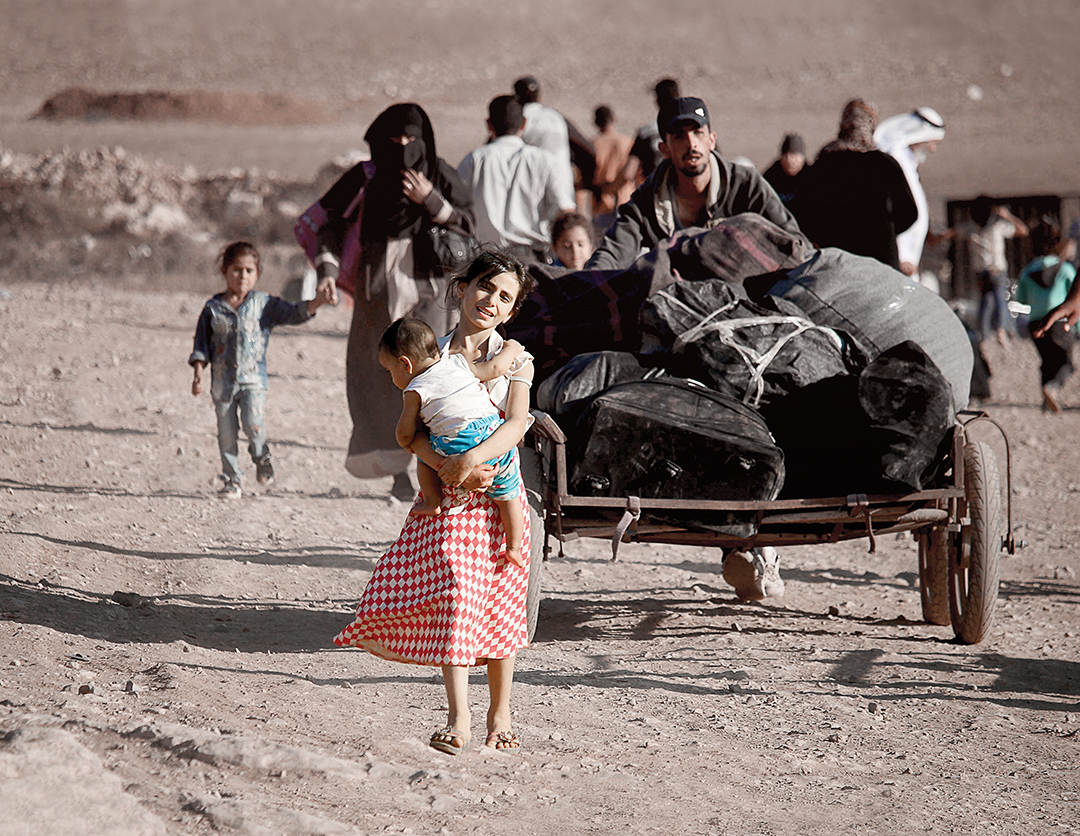
To this end, the Iftaa Department has followed a number of measures, the most important of which is preparing a curriculum for the qualification and training of imams and preachers. The department has also encouraged clerics to publish works in the field of countering extremist ideology to describe the true teachings of religion and identify malicious outsiders advocating terrorism. This has made Iftaa personnel the first line in combating extremist ideology in an environment with refugees from all backgrounds who have been subjected to violence and witnessed horrific scenes of beheadings and safe houses being blown up.
Refugees may have been subject to brainwashing from propaganda broadcast by terrorists in the areas they had seized, including leaflets, radio broadcasts and compulsory lectures in residential areas. Among the most dangerous of these activities are forcing and misleading children to join terrorist training camps. Daesh also developed an elementary school curricula based on violence and extremism. Some of these were found by coalition forces following the liberation of cities.
The second area of focus for the Iftaa and Religious Guidance Department is to prepare public security personnel. It teaches a unified curriculum about Islamic culture in public security training institutes and centers. It includes preaching and religious guidance that consists of lectures and field meetings with public security personnel working in the camps. This guarantees that comments and suggestions from camp personnel are taken into account to enhance the meanings of mercy, tolerance and moderation.
Furthermore, the Community Peace Center belonging to the Preventive Security Department of the Public Security Directorate has made significant efforts in defending against extremist thought through specialized courses, programs and planning in which refugees have a large stake.
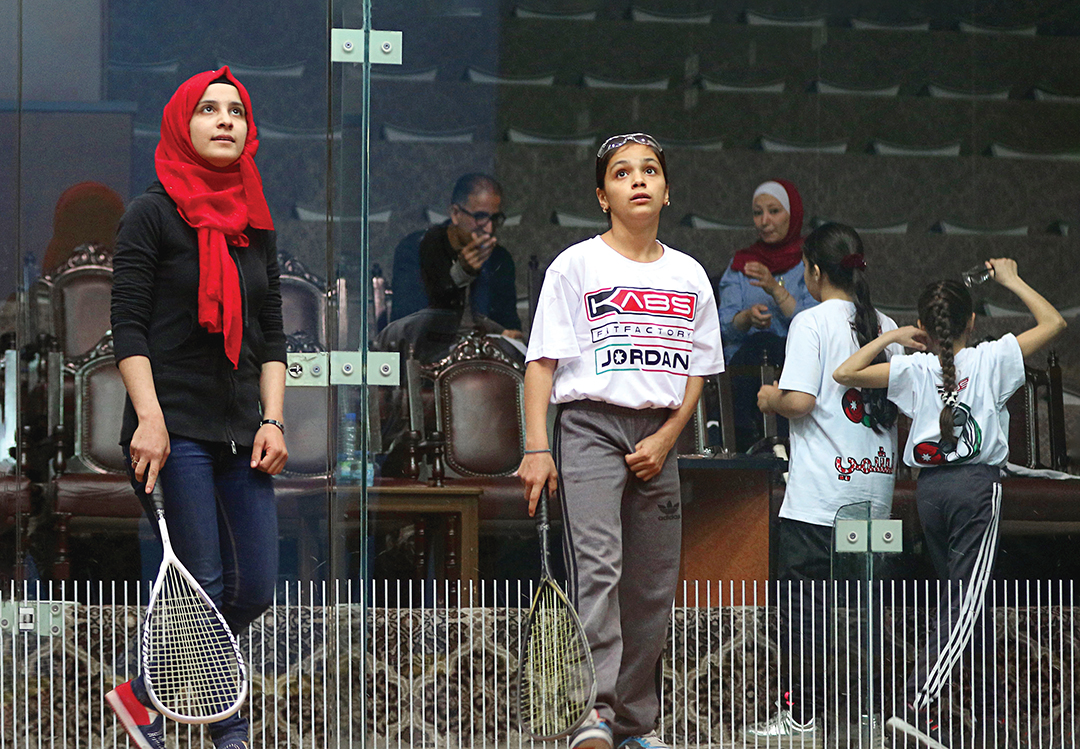
The head of the Community Peace Center, Lt. Col. Riyad al-Battoush, said: “Since the beginning of the Syrian crisis, Jordan has hosted Syrian refugees on its soil. Relevant groups were given special attention by the Community Peace Center, as it is a unit specializing in combating extremist ideology to ensure their protection and steer education away from misguided ideologies.”
The Community Peace Center focused first on personnel working in the Syrian refugee camps, equipping them with knowledge to identify extremist characters and deal with refugees coming from conflict zones. Second in line were volunteers working inside the Syrian camps. Eventually, Syrian refugees living inside and outside the camps became the focus of Peace Center programs.
“The center developed a long-term preventive approach and plan was implemented by specialist trainers. It consisted of programs, lectures and workshops on combating extremist ideology and online recruitment, and any other outside phenomena on society that undermines community peace for Syrian Refugees Affairs Directorate personnel,” Lt. Col. Riyad said. “Among these programs was the transfer of knowledge to the most prominent members within the Syrian refugee camps, as they are the most influential group there.”
A training program called the Youth Awareness Initiative was also held in cooperation with community police in various areas of the kingdom, and young people from Syria took part in it. The program included lectures on awareness of extremist ideology and the role of young people in combating it.
Center officials also held meetings with the United Nations Office of High Commissioner for Refugees and other international and local partners. They agreed to establish awareness and education programs on countering extremist ideology and community protection within the Syrian refugee camps.
Another important awareness program on countering extremism was held by the Community Peace Center in cooperation with the King Hussein Foundation’s Institute for Family Health. The target group was university students, including Syrian students, and consisted of educational lectures on the subject of countering extremist thought and online recruitment.
An important factor has been the coordination between the security institutions and the Jordan Armed Forces, and the efforts of all government agencies in this field on a national scale, such as the Ministry of Awqaf, the Ministry of Interior, the Ministry of Social Development, the Ministry of Health, the Ministry of Education and the Ministry of Labor.
They have been devoted to ensuring that refugees’ daily needs are met without discrimination and with fairness, equality and respect for human rights. This generosity has reduced discontent that can breed extremist thought. Overall, Jordan has continued with security and intelligence efforts to prevent the spread or infiltration of those with extremist ideology and to deal with them if discovered.

